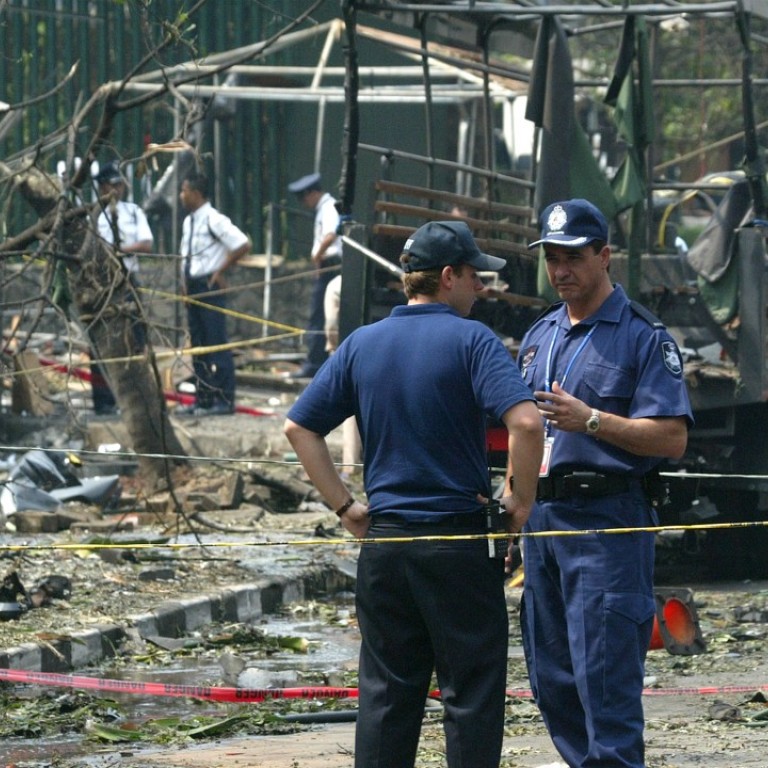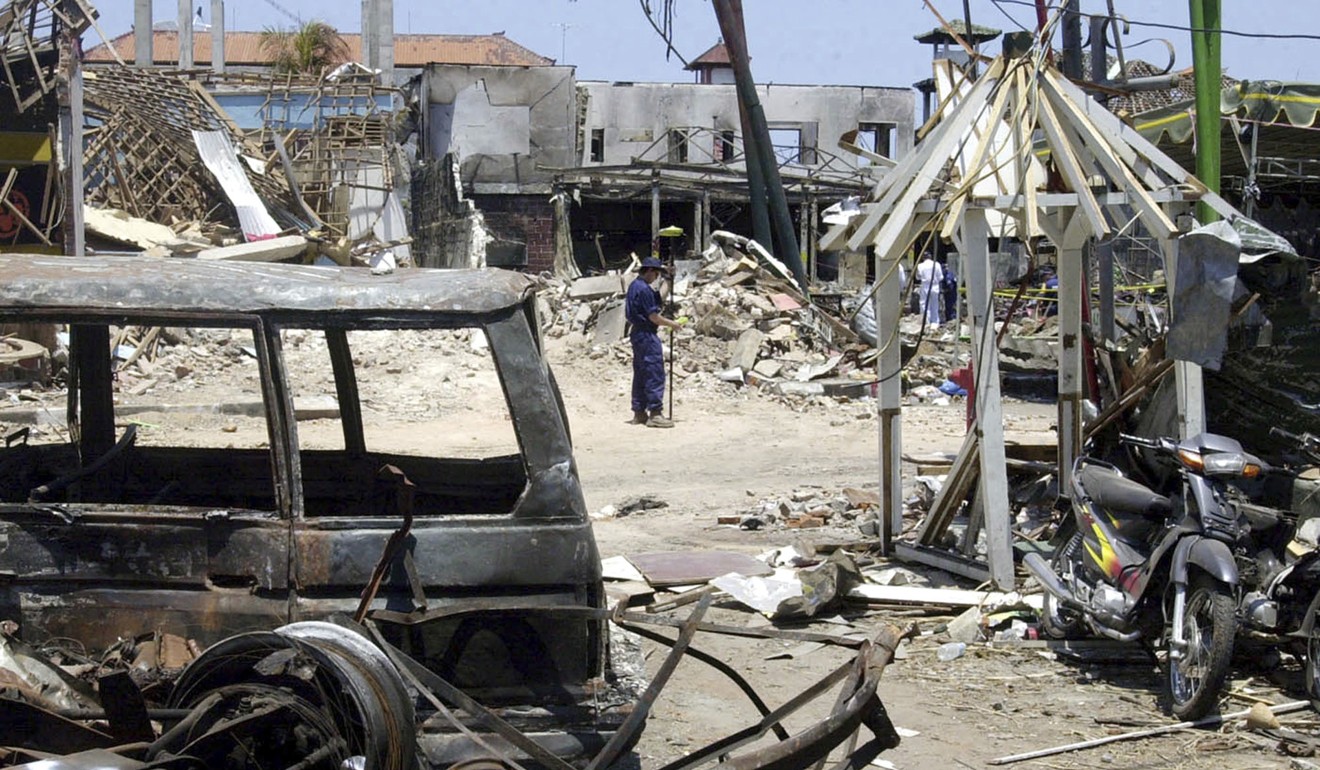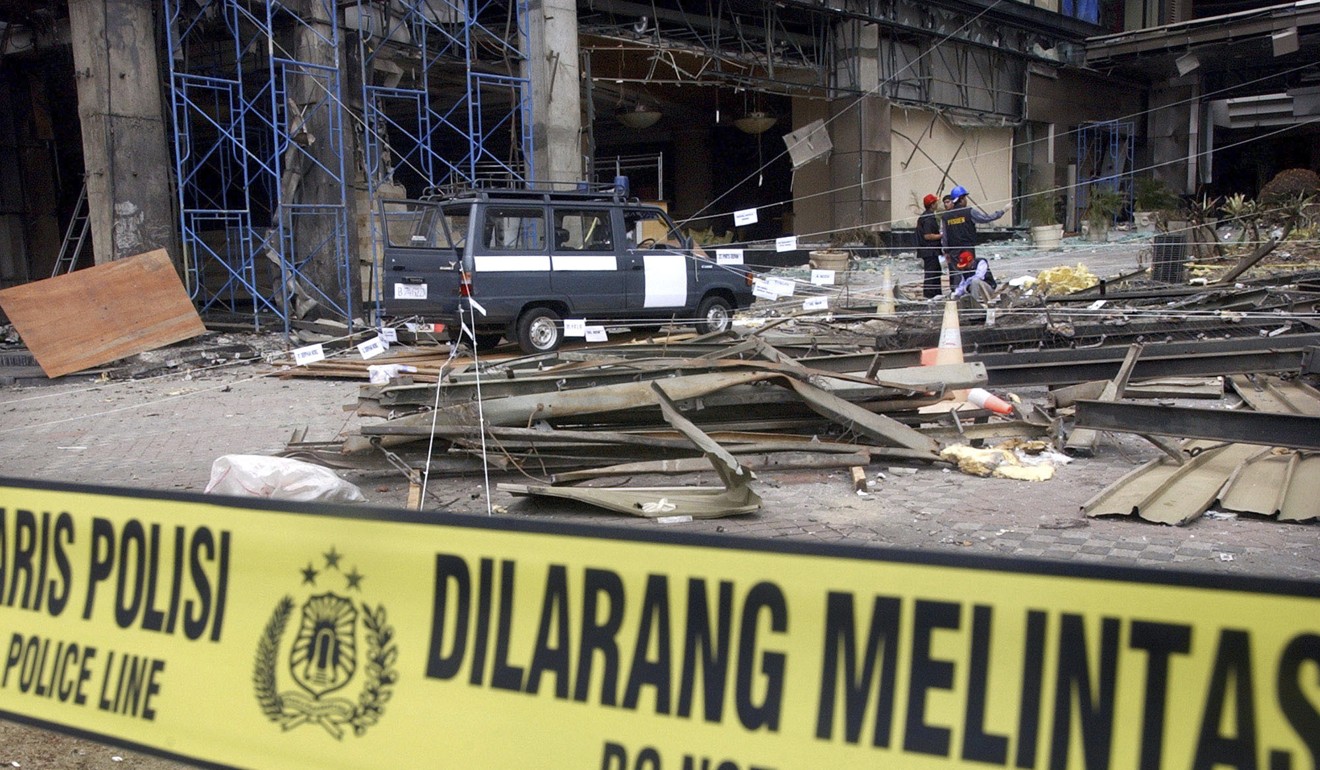
Indonesian militants apologise to victims of their attacks
The Indonesian government is bringing together dozens of convicted Islamic militants and survivors of attacks in what it hopes will be an important step in combating radicalism and fostering reconciliation.
About 120 reformed militants will apologise to dozens of victims including survivors of the 2002 Bali bombings and the 2004 bombing of the Australian embassy in Jakarta, according to Irfan Idris, director of de-radicalisation at Indonesia’s counterterrorism agency.
The three days of meetings at a Jakarta hotel began on Monday.
“Many militant convicts have changed and are taking the right course with us by drawing on their experience to prevent others from taking up violence,” Idris said. “These facts have inspired us to reconcile them with their victims.”

Indonesia has imprisoned hundreds of Islamic militants in the years since the Bali bombings that killed more than 200 people, mostly foreigners.
But its efforts at convincing imprisoned militants to renounce violence have had mixed results. In overcrowded and understaffed prisons, militants have been able to convert other prisoners to radicalism and communicate with supporters on the outside to encourage new attacks that they believe will advance their cause of transforming Indonesia into an Islamic state.
At least 18 former militant prisoners have been involved in attacks in Indonesia since 2010, including a January 2016 suicide bombing and gun attack in downtown Jakarta.
Febby Firmansyah Isran, who suffered burns to 45 per cent of his body from the 2003 bombing of the JW Marriot hotel in Jakarta, said to begin with he was so overwhelmed with anger that it worsened his health.

At the urging of his fiancé – now wife – Isran said he accepted what happened to him as an act of God.
“I have forgiven them and it has even improved my recovery process and calmed me down,” said Isran, who founded a support group for bombing victims and is attending the meetings. His group now has 570 members, about 60 of whom suffer from total physical disability.
I really hope apologising directly to the victims can ease the feelings of guilt
However, many victims have refused to participate in the event because they cannot forgive the attackers or are still traumatised and afraid to meet convicted radicals.
“We cannot force the victims to come as there are also some militants who are not willing to come,” Isran said.
Idris said families of those killed in attacks endure psychological scars and economic hardship and survivors are often left with debilitating physical disabilities.
But he said the government-sponsored event wants to encourage support for militants who reject violence and try to become part of mainstream society after being released from prison.
After release, they are often ostracised, unable to find work and their children are stigmatised, which contributes to some of them returning to their radical networks, he said.
Masykur Abdul Kadir, who in 2003 was sentenced to 15 years prison for his involvement in the Bali bombing, said he believes the event will have an effect on both sides.
“We can hear their suffering and see directly the impact of what we did in the past to innocent people,” said Kadir, who was known as “local boy” in the Bali bombing for his role in reconnaissance and guiding militants who came to Bali from other parts of Indonesia.
“I really hope apologising directly to the victims can ease the feelings of guilt that for years continually burden my life,” said Kadir, a father of four. “Hopefully this meeting can be a force for ex-militants to refuse committing violence.”

